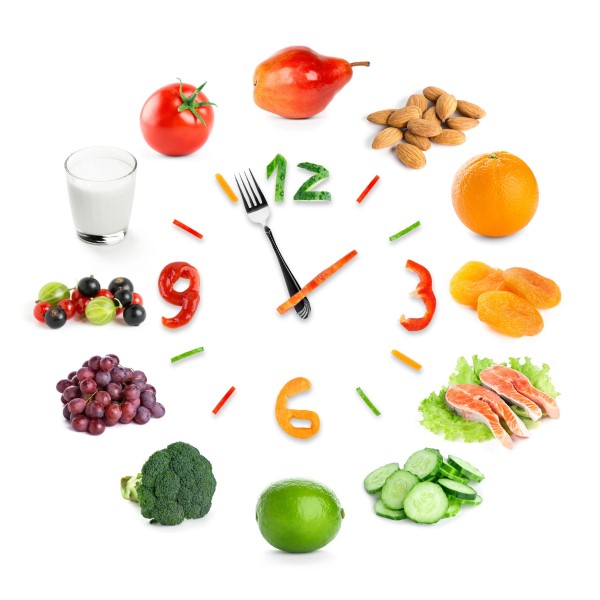“I didn’t mean to gain weight. It happened by snaccident.” –Cindy Kranzie Newman
I meet a lot of people who are told to eat every two hours to address their “adrenal fatigue” The idea behind this suggestion is to help stabilize your blood sugar to allow your adrenal glands to rest. Unfortunately, this solution only works like a band aide for your symptoms, rather than addressing the problem at its root.
When blood sugar levels drop too quickly from eating processed foods, the adrenal glands release cortisol to raise your blood sugar. You end up feeling sluggish or your energy crashes several times a day, until you raise your blood sugar levels again.
This can result in a metabolic roller coaster that creates exhaustion in your entire endocrine system, not just your adrenal glands. It stems from the stress and inflammation of eating a diet high in carbohydrates, like sugar, rice, white flour, alcohol, and pasta.
This concept of adrenal fatigue, which seems to be all the rage right now, is really endocrine fatigue. Nothing exists in isolation. If one gland is struggling, they all are. As far as snacking goes, eating every two hours may not be the best approach.
We need to call snacking what it is: a compensatory behavior. A healthy body does not need food this frequently.
A temporary crutch? Yes.
A way of living? No.
Here’s the scoop…we are not designed to have food in our stomachs 24 hours a day, 7 days a week. Insulin, for instance, is a hormone released from the pancreas that puts sugar into your cells for fuel. While insulin plays an important role in our metabolism, in excess it is a major problem. Insulin means “insulate.” You cannot burn fat if insulin is present.
Remember, insulin is a hormone and all of your hormones dance together. Think of your hormonal system as an orchestra. When you feel good, you hear Mozart and flow through your day in perfect sync with life. But when you feel bad, your hormones are like the high school band that can’t find its tune, and you feel off. You just can’t find the flow of sustained energy.
In the context of snacking for blood sugar regulation, I want to focus on insulin’s relationship to growth hormone. Growth hormone comes from the pituitary, and it’s your “burn fat and build lean muscle” hormone. This is the opposite effect of insulin.
Guess what? When insulin goes up, growth hormone goes down. So if you’re snacking every two hours, good luck burning fat. In this model of thinking, you are going to become food dependent, when the goal should be interdependence.
Yes, we need food, but remember the good old days when mother’s mantra was, “Hey, no snacking! You’re going to ruin your dinner.” There is wisdom in that.
Also, think about our ancestors…do you honestly think that hunters and gatherers ate every 2 hours? I don’t think so.
Here is what you need to realize: there are many different kinds of hunger. Get in tune with how your body talks to you. Right now, people talk about being “hangry.” This is that all too frequent experience of hunger and anger. It may be funny and common, but it is definitely NOT normal. Your mood should not fluctuate when you are hungry. Healthy hunger manifests as a soft nudge to go eat, not as some kind of ravenous hunger that makes you want to hit someone in the face.
I happen to be an expert on this matter because my nickname as a child was The Exorcist. My diet at the time was very high in sugar and when the sugar high wore off, I went from being a happy high child to acting like a little monster. I didn’t have control over my diet or my behavior and my health paid the price.
I felt hunger in my nervous system, instead of my stomach. My brain did not like fluctuating blood sugar levels that came from eating too many simple carbohydrates! And neither does yours. I share this because we need to wake up to the fact that what we eat affects our biochemistry, which affects our mood and behavior.
I didn’t feel hunger in my stomach until I was 30 years old. I had experienced a sudden and profound improvement in my health. I ate a big breakfast that morning. I sat down to study and the hours flew by. I felt a little rumble in my tummy, looked at my clock and saw that it was 3PM, and I felt normal! I couldn’t believe it. I took a break to have lunch and realized that this was a first. No jitters. No emotional rollercoaster, just an empty stomach. My metabolism was stable.
So how do you set yourself up for a life of freedom around food where you don’t have to snack every 2 hours?
#1 – Eat an awesome breakfast!
The first answer has already been mentioned: a big breakfast, rich in protein and fat, and little to no carbohydrates. For my family, this usually looks like two sausage patties from Richardson Farms and two fried eggs, over medium, from Vital Farms.
Here are some other suggestions:
- Eggs and bacon.
- Breakfast tacos made with eggs, bacon, or sausage on Siete Family’s Almond Flour Tortillas.
- Crustless quiche.
- Leftovers from dinner: protein and veggies. Some of my favorites include salmon, meatloaf, or steak with zucchini.
#2 – Exercise smarter not harder.
While exercise is a great energy booster, our culture tends to rally around reaching total burnout in our workouts, again only adding to the endocrine fatigue. Another way to find balance is to focus on doing restorative exercise on a consistent basis, such as walking, yoga, and rebounding. Find something to do that gently moves your body and allows you to focus on your breath.
#3 – Sleep like you mean it.
Going to bed between the hours of 9pm and 11pm not only sets your body up for a restful sleep, it also allows your endocrine system to restore itself from the stressors of the day. You’ll wake up more refreshed and will experience fewer carb cravings when your hormones have had time to rebalance. If you’d like to receive a free copy of 5 Ways to Maximize the Benefits of Sleep, subscribe to my website and I’ll send one right over.
There are unique situations where these rules do not apply. In pregnancy and lactation and in children growing rapidly, metabolic demands are high, but once again, even in these instances, you can pay attention to how your hunger shows up.
And what about the people who naturally have faster processing metabolisms? Athletes are often in this category, burning calories even when they are resting. Historically, these people were told to “carb up” to sustain their energy, but this only leads to an inevitable crash when the insulin wears off and their energy takes a nose-dive. What their bodies really need is a diet focused on nutrient dense foods that burn long and slow, like fatty proteins and un-starchy vegetables.
Food allergies and the resulting inflammation can also wreak havoc with hunger and wellbeing and the incessant need to snack.
The bottom line is that when you eat enough protein, fat and fiber in un-starchy vegetables and berries, the experience of being “hangry” disappears. Instead you feel that happy music playing in your soul, and then you can sing your song in this world.
Eat in Peace.
Love,
Charlotte
P.S. If you’d like to read more about how to address adrenal fatigue, check out this wonderful Kindle book called, RETHINKING FATIGUE: What Your Adrenals Are Really Telling You And What You Can Do About It, by Nora Gedgaudas.

